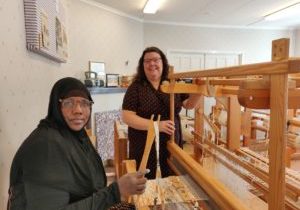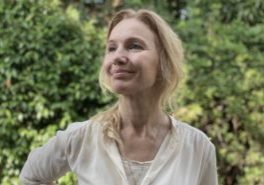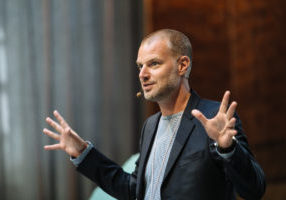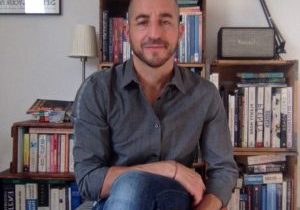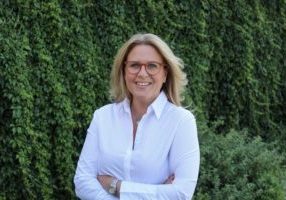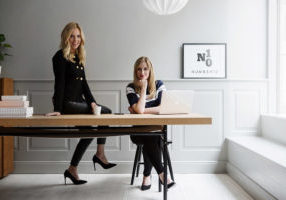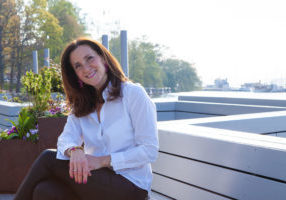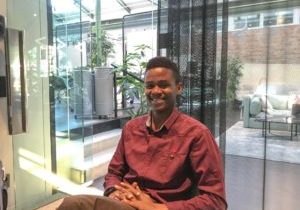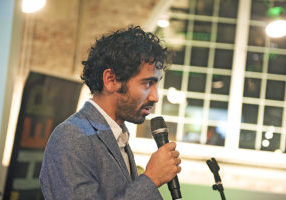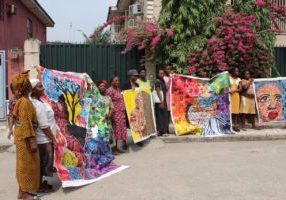
Liberation Chocolate, Rehabilitating Former Child Soldiers of Liberia
May 8, 2014 - Interviews
Sheikh Abu Turay, the 34 year old Founder and CEO of Liberation Chocolate Inc. exudes resilience, confidence and is a jolly character. His past however is far from jolly, having witnessed the Liberian Civil War of 1990, at the age of 10 he was sent to a U.N refugee camp where he spent the next 14 years of his life. On return to Liberia, he was met by a country in a state of economic downturn grappling from the effects of war. A war that had produced 150,000 child soldiers who were now grown men without a means of livelihood and shunned by the community. These circumstances saw the formation of Liberation Chocolate Inc. An organization set on rehabilitating and re-intergrating former child soldiers through the provision of employment.

3 sentences only, who is Sheikh?
I am Sheikh A. Turay, the Founder and CEO of liberation chocolate INC.I hold a bachelor degree in Accounting and Economics. Former Refugee and school teacher.
What does your company/organization do?
We rehabilitate abandoned cocoa farms in Liberia to provide employment to former child Soldiers
What is your role? How is a typical day being you?
As CEO, I spend a most of my day responding to emails from potential clients and business inquiries from chocolate companies. I spend part of my day in discussions with Government officials on possible expansion of projects using Government farms to provide additional employment opportunities in the country.
What led you to this path? How has your journey been so far?
When I was 10 years old, I fled from the war in my home country Liberia and lived for the next 14 years in a refugee camp. The war killed 250,000 people; put guns in the hands of 150,000 people many of them children; sent to exile almost a million refugees and displaced thousands.
When I returned to Liberia, I found a completely failed and devastated country with cocoa farms overgrown as far as the eyes can see.
I also witnessed former combatants turning in their guns in order to receive USD150 but these guys had no livelihood once the USD150 ran out. They were still vulnerable to fall back into crime and even get re-recruited by militants. I decided to tackle these problems by creating employment opportunities for these former child Soldiers and the unemployed.
So far we have rehabilitated three cocoa farms, there are still thousands of farms that remain abandoned.
We have also provide employment opportunity to 50 former Child Soldiers there are still 150,000 former Combatants who are still unemployed.
We have three customers so far in the US market and we’ve produced and supplied a total of 30 metric tons to those companies in 2013.
What’s your next step? What’s your dream/vision?
My next step is to increase productivity, acquire additional customers, and build the first chocolate company in Liberia.
Being a social entrepreneur is most often not to follow the straight wide road. Can you tell us about any road less travelled that you’ve taken and how it turned out?
My Application to the unreasonable Institute required me to raise USD 10,000. This amount was meant to showcase my fundraising skills as well as cater for my stay in the USA during the program. Coming from a poor country with a few people having access to the Internet a lot of my friends thought I was crazy. Some people told me that the Unreasonable institute was a 419 scam while others thought I was raising money for my personal use. I got onto social media and somehow some people both in Liberia and the US believed in me and I managed to raise the amount. In Liberia, people are afraid of taking that next step, apprehensive about adopting new skills and technology to better themselves.
What impact do you aim to make? What impacts have you seen so far?
So far I can say that I have succeeded, even though not at a large scale, in reviving cocoa business in Liberia and provide employment opportunity regardless of educational capacity.
Why does this (the impact you are trying to make) matter to you?
It matters to me because we are keeping the country safer and bringing hope to the hopeless.
Why are you participating in the SE Outreach Accelerator? What were/are your expectations? What are your needs? How has your experience been so far?
I am participating in the SE Outreach Accelerator to learn how to run my business.
My needs are fund raising techniques and finding customers and collaborating partners in the Nordic area. My experience so far has been fantastic and pleasantly surprising.
Any good tips you want to share with the outer world?
Business should not only be about how much money you can make but a true purpose is to see your enterprise affect people in a positive way through empowerment

